The best historical fiction writers apply the same level of meticulous research to their subject as their non-fiction counterparts, but offer the added bonus of a compelling narrative, allowing the reader to be transported effortlessly to a bygone era. From epic adventures and family sagas to vivid portrayals of the horrors of war, the following ten historical novels all definitely fall into this category.
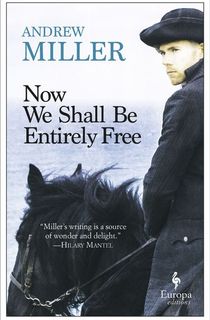
Now We Shall Be Entirely Free
Early 19th-century British army captain, John Lacroix, is the main protagonist of this gripping historical thriller, which one critic described as a “beautifully written investigation into atrocity, guilt and new beginnings” (Justine Jordan, Guardian).
Having returned home injured from the Napoleonic Wars, Lacroix is nursed back to physical health but remains psychologically scarred by a mysterious incident that occurred during his military service in Spain. He escapes to the remote Scottish Hebrides in the hope of finding redemption, but instead finds himself embroiled in a terrifying fight for survival that brings him face to face with his past.
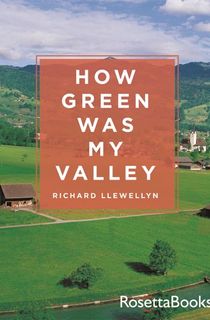
How Green Was My Valley
Richard Llewellyn’s timeless 1939 novel of love and hardship in the Welsh valleys is narrated by the elderly Huw Morgan. The old man recalls coming of age in the late 19th century at a time when life for many in his small rural community, not least his own family, was set to be transformed forever by the arrival of the coal mining industry.
Packed full of memorable characters, this elegantly written novel “of exquisite distinction and vibrant interest” (New York Times Book Review) became an instant bestseller upon its publication and subsequently inspired an Oscar-winning movie.
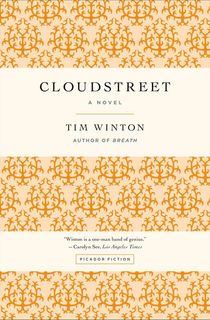
Cloudstreet
Two contrasting families end up sharing No. 1 Cloudstreet, a dilapidated old house in Perth, following unrelated tragedies in the early 1940s. The Pickles and Lambs differ in almost every way, but over the following two decades learn to co-exist as they contend with the vicissitudes of everyday life.
Award-winning Australian author, Tim Winton, handles pathos and humor with equal aplomb in this “marvelous postmodern novel of family life” (Kirkus Reviews).
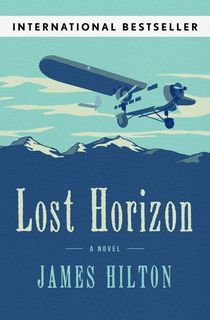
Lost Horizon
Inspired by the legendary Tibetan paradise of Shambala, James Hilton created the intriguing utopian world of Shangri-La for this 1933 adventure story.
When British diplomat, Hugh Conway’s, plane is hijacked and crashes in the Himalayas, he and his fellow passengers are taken to the idyllic Shangri-La, a hidden mystical paradise where inhabitants live for hundreds of years. However, Conway soon discovers that all is not what it necessarily seems in Shangri-La and is faced with the dilemma of whether to stay or return the outside world, raising some fascinating questions about the true nature of paradise.
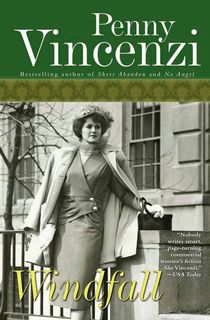
Windfall
Penny Vincenzi has been described as “the doyenne of the modern blockbuster” (Glamour) and she doesn’t disappoint in this captivating family saga, set against the backdrop of London’s high society in the 1930s. Cassia Tallow once had her own promising career in medicine but gave it all up upon her marriage to a country doctor.
Seven years later, she inherits a vast fortune from her godmother and decides to resume her former life in London. Here she finds passion and excitement, but also temptation and danger, as she discovers the truth about her inheritance.
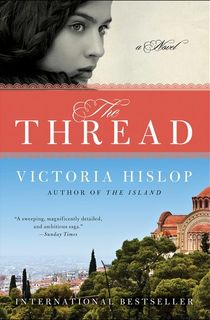
The Thread
The Thread has at its heart a compelling love story that endures in the midst of one of the most turbulent periods in Greek history. In the early 21st century, a young Anglo-Greek man questions his own life choices after discovering for the first time the remarkable story of his own grandparents’ experiences in the Greek coastal city of Thessaloniki.
Set within the context of the civil unrest, Nazi occupation and Jewish persecution that dominated the city’s 20th-century history, Victoria Hislop excels at bringing the past alive in this “sweeping, magnificently detailed and ambitious” family saga (Sunday Times).
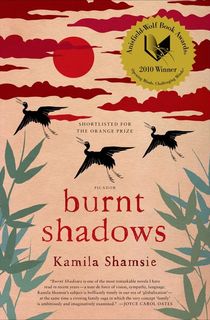
Burnt Shadows
Author Kamila Shamsie takes her reader on a rollercoaster ride through some of the most momentous events in recent history in this “epic yet skillfully controlled” novel (Guardian). At its heart are the interwoven stories of two families whose connection stems from a romance towards the end of World War II between Hiroko Tanaka, a young Japanese schoolteacher, and an idealistic Berliner named Konrad Weiss.
Their relationship is tragically cut short when the atomic bomb is dropped on Nagasaki, but Hiroko survives and begins a new life in New Delhi with the help of Konrad’s sister. From there the novel traces the stories of three successive generations of family members across three continents, culminating in New York and Afghanistan in the wake of 9/11.
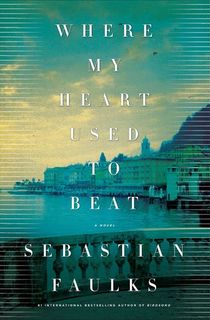
Where My Heart Used to Beat
Birdsong author Sebastian Faulks’ “profoundly moving novel” (The Independent) explores the irreparable harm caused to those who witnessed first-hand the harrowing events of World Wars I and II. Despite becoming a successful psychiatrist, Robert Hendricks has suppressed his own painful personal memories, particularly those relating to a devastating love affair with an Italian woman during World War II.
After more than three decades of depression and loneliness, he accepts a mysterious invitation to visit the secluded French home of an elderly neurologist named Dr. Alexander Pereira. Under Pereira’s guidance, Hendrick finally begins to come to terms with his past, but why is the older man so keen to help him?
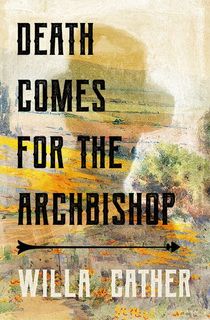
Death Comes for the Archbishop
This bestselling novel of 1927 is loosely based on the experiences of a real-life mid-19th century bishop who established the first Roman Catholic diocese in New Mexico. Death Comes for the Archbishop chronicles the numerous challenges faced by the pioneering missionary, Jean-Marie Latour, as he travels through the vast and forbidding deserts of the American Southwest with his friend and fellow priest, Father Joseph Vaillant.
Willa Cather, a Pulitzer Prize winning author, brings the unique landscape, natural world and indigenous peoples of the Mexican borderlands vividly to life in this “truly remarkable book…soaked through and through with atmosphere” (New York Times).
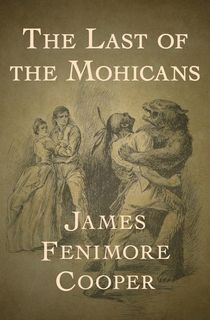
The Last of the Mohicans
Often described as the first great American novel, James Fenimore Cooper’s classic wilderness adventure story was published in 1826, but is set seven decades or so earlier. The last of the Mohicans, a once thriving indigenous people, live largely undisturbed in upstate New York, but their peaceful way of life is threatened when they are drawn into the fight between the French and British for control of the eastern US frontier.
The perennial appeal of Cooper’s masterpiece lies not only in the fast-paced plot including spine-tingling battles, acts of treachery and a doomed love affair, but also his vivid portrayal of the evolving friendship between Hawkeye, the colonial scout, and Chingachkook, the Mohican warrior.
